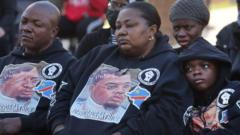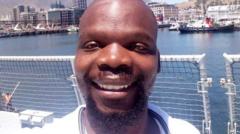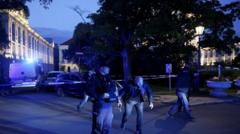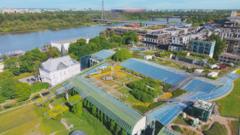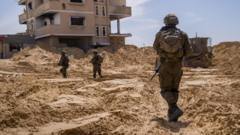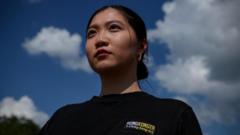Following the arrest of suspended President Yoon Suk Yeol, South Korea stands at a crossroads, reflecting a society deeply divided over political ideologies. The incident has ignited protests and celebrations, revealing a stark schism between supporters and opponents, while raising questions about the future of governance and democracy in the country.
South Korea's Political Polarization Deepens Amidst Yoon's Arrest
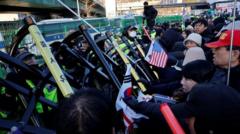
South Korea's Political Polarization Deepens Amidst Yoon's Arrest
In the wake of President Yoon Suk Yeol's arrest, South Korea grapples with heightened divisions and uncertainty over its political future, as opposing factions clash.
As South Korea processes the arrest of suspended President Yoon Suk Yeol, the nation is engulfed in a climate of political tension and emotional upheaval. Yoon's supporters reacted to the news of his arrest with tears and anger, expressing their dismay outside his residence. A pro-Yoon woman lamented, "This country is in crisis," highlighting the pervasive sense of instability that has taken hold.
The dramatic turn of events followed weeks of escalating tensions, culminating in a failed arrest attempt on January 3. NPR reported that supporters camped outside the presidential compound, braving frigid temperatures to show solidarity with Yoon. In stark contrast, opponents of Yoon celebrated his arrest, embodying the deep divide that has come to characterize South Korean politics since his controversial declaration of martial law in early December.
Yoon, who has faced intense scrutiny and calls for impeachment since his martial law order, has polarized public opinion across the country. While some citizens view his actions as protective measures against an alleged existential threat, many others interpret them as an abuse of power that undermines democratic processes. This discord is most evident in the streets of Yongsan, where opposing protesters have clashed, with shouts of jubilation meeting anger and frustration.
The broader implications of Yoon's arrest stretch far beyond an isolated incident. Many South Koreans sense a growing state of unease as the nation grapples with tragedies like the Jeju Air crash and grapples with what it means to be a democracy in turmoil. Amidst these struggles, Yoon's deliberate avoidance of public engagement has further estranged him from segments of the population that once supported him.
As the legal proceedings unfold, both Yoon and his opponents seek to articulate competing narratives. Yoon's lawyers contest the legality of his arrest by arguing insurrection charges fall outside the mandate of the Corruption Investigation Office (CIO). Conversely, the CIO asserts this charge constitutes a form of power abuse, placing Yoon's situation firmly within their purview.
With the search for political retribution and public accountability at the forefront, South Korea faces an uncertain future as the impeachment process against Yoon moves forward. Many voices across the nation are calling for unity and reconciliation, yet the path to healing appears fraught with challenges. The stark realities of political polarization are likely to persist, testing South Korea’s identity, democratic values, and governance in the years ahead.



